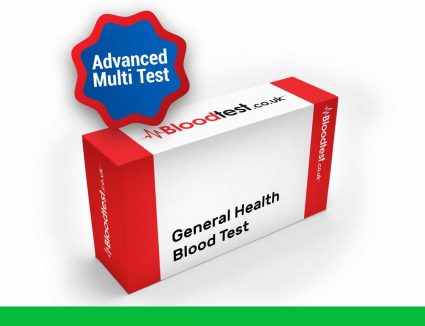Ultimate Resource for General Health Blood Tests in Solihull to Enhance Your Well-Being
Participating in a general health blood test in Solihull represents a proactive step towards improving and maintaining your overall well-being. These vital tests are carefully crafted to assess a wide array of health markers, offering an in-depth look into your overall health status. By identifying potential health concerns that may otherwise go unnoticed, these blood tests empower you to take control of your health journey, allowing you to make informed decisions about your lifestyle and medical care.
Understanding the Importance of General Health Blood Tests

A general health blood test in Solihull serves as a crucial diagnostic procedure that assesses a comprehensive range of health indicators through a blood sample. This evaluation typically includes critical markers such as glucose levels, cholesterol levels, liver enzymes, and various other significant elements found in your bloodstream. Through the meticulous analysis of these indicators, healthcare professionals can accurately gauge your overall health and detect any underlying medical conditions that might require additional examination, ultimately enabling timely and effective interventions.
The process begins with a simple blood draw, usually taken from a vein in your arm. Following this, the sample is sent to a laboratory for an extensive analysis. The resulting information can illuminate numerous aspects of your health, revealing whether there are any deficiencies or if your organs are functioning optimally. Understanding these critical details is vital for sustaining peak health and preventing future health complications.
Prefer to Listen to This Guide? Here’s How!
 The Indispensable Role of General Health Blood Tests
The Indispensable Role of General Health Blood Tests
Regularly undergoing general health blood tests in Solihull is crucial for numerous reasons. Most importantly, these tests allow for effective monitoring of your overall health, enabling the early identification of potential health issues. For instance, recognising elevated cholesterol or abnormal glucose levels empowers you to make necessary lifestyle changes or seek medical intervention before more serious conditions arise, thus protecting your health.
Additionally, these tests serve as essential preventive measures. Routine screenings can help detect diseases such as diabetes, heart disease, and liver dysfunction in their early stages, where treatment options are typically more effective. Engaging in these tests can potentially save lives while significantly decreasing long-term healthcare costs, making them an essential aspect of your health maintenance strategy.
Finally, having a clear understanding of your health markers can guide your lifestyle choices, including diet and exercise, while also informing any necessary medical interventions. This knowledge empowers you to take charge of your health and enhance your quality of life.
Decoding Your Blood Test Results Effectively
The results of a general health blood test in Solihull can vary from normal to abnormal. A normal result indicates that your health is generally stable, while abnormal results may necessitate further investigation. Each health marker comes with a reference range that signifies healthy levels, and any deviations from these ranges could indicate potential health concerns.
For example, elevated liver enzymes may suggest inflammation or damage to the liver, while high cholesterol levels could indicate an increased risk for cardiovascular diseases. Understanding these results is essential, as they form the basis for any necessary follow-up discussions with your healthcare provider, ensuring you receive the most suitable care tailored to your individual needs.
Essential Steps to Prepare for Your Blood Test

Preparation is imperative for obtaining accurate results from your general health blood test in Solihull. Knowing the appropriate steps to prepare can streamline the process and enhance the reliability of the testing.
Key Preparation Steps for Your Blood Test
Preparing for a general health blood test in Solihull involves several crucial steps, particularly regarding dietary restrictions. Your healthcare provider may recommend fasting for a specific duration prior to the test, usually ranging from 8 to 12 hours. This fasting period is essential to ensure that food does not interfere with your blood’s glucose or lipid levels, thus providing a clearer representation of your health markers.
Furthermore, it is important to inform your healthcare provider about any medications you are currently taking, as some medications may affect test outcomes. They may advise you to temporarily stop certain medications before the test. Additionally, staying well-hydrated by drinking water can facilitate the blood draw, making your veins easier to access and ensuring a smoother experience.
What to Expect During the Blood Test Procedure
The experience of undergoing a general health blood test in Solihull is typically straightforward and quick. A trained professional will first disinfect the skin area on your arm before inserting a needle into a vein to collect the blood sample. While some individuals may feel a slight pinch, the procedure is generally swift and involves minimal discomfort.
After the blood draw, a small bandage is usually placed over the puncture site. Most tests can be completed in just a few minutes, allowing you to return to your daily activities almost immediately. The collected sample will be sent to a laboratory for thorough analysis, with results typically available within a few days, keeping you informed about your health status.
Post-Test Care and Follow-Up: Important Considerations

After completing your general health blood test in Solihull, it is essential to monitor the puncture site for any signs of bleeding or unusual swelling. Applying gentle pressure can help reduce any bruising that may occur. If you observe excessive bleeding, pain, or symptoms of infection, it is advisable to promptly contact your healthcare provider for appropriate guidance.
Your healthcare provider will schedule a follow-up appointment after the test to discuss your results. They will assist you in interpreting what these results mean regarding your overall health and outline any necessary next steps. Being proactive about this follow-up can significantly enhance your understanding of your health landscape and support you in making informed decisions moving forward.
Diving Deeper into the Interpretation of Your Blood Test Results
Interpreting your general health blood test in Solihull results may initially appear overwhelming, but understanding what each marker signifies is essential. Your healthcare provider will provide you with a comprehensive explanation, helping you grasp normal ranges and what any deviations could imply regarding your health.
For instance, if your cholesterol levels are elevated, it may indicate the need for dietary changes or further testing to assess cardiovascular risk. Conversely, normal results can offer reassurance, confirming that your health is on track. Being knowledgeable about your health empowers you to make informed decisions regarding your lifestyle and any necessary medical interventions.
Locating Reliable Testing Facilities in Solihull
Finding a suitable facility for your general health blood test in Solihull is essential for effective health management. Thankfully, local residents have a variety of options at their disposal, ensuring easy access to the required testing services.
Accessing NHS Resources in Solihull for Blood Testing
The National Health Service (NHS) provides numerous facilities across Solihull where you can access free general blood tests as part of routine health assessments. These services are available to all registered patients and can be accessed through your GP surgery or local health centre.
During your visit to an NHS facility, you will undergo a comprehensive evaluation, and a healthcare professional will ascertain whether a blood test is necessary based on your medical history and any symptoms you may present. This integrated approach ensures that your testing aligns with your specific health needs and concerns.
Exploring Private Clinics and Laboratories for Blood Testing
For those who prefer faster results or more flexible scheduling, private clinics in Solihull provide an alternative for general health blood tests. These facilities often offer a broader range of testing services and expedited care. Although there may be associated costs, the convenience of private testing is particularly appealing to individuals with busy schedules or urgent health concerns.
Many private clinics also offer comprehensive consultations, allowing you to discuss your results in detail and explore personalised health management strategies. Scheduling appointments at your convenience can significantly reduce waiting times, enhancing your overall experience and ensuring timely access to your health information.
Leveraging Mobile Testing Units for Added Convenience
Mobile testing units present another innovative solution for obtaining general health blood tests in Solihull. These units often appear at community events, health fairs, and various locations throughout the borough, making it more convenient for residents to access testing services without the need to travel to a facility.
These mobile units bring services directly to you, enhancing accessibility for those who may find it challenging to attend a traditional clinic. This initiative aims to promote community health awareness and encourage regular health check-ups among residents, making it easier than ever to prioritise your health.
Understanding Financial Aspects and Insurance Coverage for Blood Tests
Gaining clarity on the financial implications of your general health blood test in Solihull is vital for effective health management. Costs can vary significantly based on whether you choose NHS services or private clinics, and it is essential to be aware of potential insurance coverage.
NHS Coverage for Blood Tests: Key Insights
A major advantage of accessing a general health blood test in Solihull through the NHS is that these tests are typically provided at no cost. This provision ensures that residents can monitor their health without incurring substantial expenses. All registered patients can access these services as part of their routine health checks, effectively lowering barriers to obtaining vital health information.
Private Insurance and Coverage for Blood Tests
If you opt for private testing, it is prudent to review your health insurance policy to understand the coverage details pertaining to general health blood tests in Solihull. Many private health insurance plans include coverage for these tests; however, specifics can vary considerably between providers and plans. Being aware of your coverage can help prevent unexpected costs and ensure you receive the benefits you are entitled to.
Preparing for Out-of-Pocket Expenses for Private Tests
If you choose to use a private facility for your general health blood test in Solihull without insurance coverage, it is essential to consider potential out-of-pocket costs. These expenses can vary based on the clinic and the complexity of the tests performed. Typically, prices range from £50 to £200 for standard tests, so it is wise to confirm costs beforehand to manage your budget effectively and avoid surprises.
Eligibility Criteria for NHS Blood Tests
Patients must meet specific medical criteria to qualify for NHS-funded general health blood tests in Solihull. Usually, your GP will assess your health history, presenting symptoms, and risk factors before recommending a blood test. Engaging in open discussions with your healthcare provider about health concerns can assist in determining your eligibility and ensuring you receive appropriate care.
Cost Comparison: NHS Versus Private Blood Tests
When deciding between NHS and private general health blood tests in Solihull, it is crucial to weigh the costs against your health needs and financial situation. NHS tests are generally free, while private tests incur costs that may offer quicker services and greater convenience. Understanding the advantages and disadvantages of each option will enable you to make an informed decision that aligns with your health priorities and budget.
Decoding and Interpreting Your Blood Test Results
Understanding your general health blood test results in Solihull is an empowering step in enhancing your health awareness. Knowing what your results signify enables you to take a proactive approach to your well-being and health management.
Understanding Normal Ranges: Vital Information
Each component of your blood test results carries a normal range, which can differ between individuals based on factors such as age and sex. For example, the typical normal range for cholesterol levels is between 3.6 and 5.2 mmol/L for adults. Familiarity with these ranges is crucial for evaluating your overall health and identifying any areas that may require further attention or intervention.
In addition to cholesterol, other markers such as blood glucose levels, liver function enzymes, and white blood cell counts also possess defined normal ranges. Understanding these benchmarks will assist you in assessing the significance of your results and comprehending how they relate to your overall health picture and lifestyle.
When to Seek Additional Guidance from Your Healthcare Provider
If your general health blood test in Solihull yields results outside the normal ranges, it is vital to consult your healthcare provider for further guidance. Abnormal results may indicate underlying health issues that necessitate additional investigation or intervention. Your healthcare provider can guide you through these steps, ensuring appropriate follow-up tests or treatments are organized to address any concerns.
Remaining proactive about abnormal findings is essential, as early intervention can significantly improve health outcomes. Engaging in open discussions with your healthcare provider will facilitate effective health management and tailored treatment plans that suit your specific needs.
Monitoring Your Health Progress Over Time
Regularly tracking your general health blood test results in Solihull is a beneficial practice for observing changes in your health over time. By maintaining a record of your results, you can identify trends and fluctuations that may indicate the need for lifestyle adjustments or medical interventions.
Consider setting reminders for regular testing, especially if you manage chronic conditions or possess risk factors that require close monitoring. Staying informed about your health status empowers you to make educated decisions and proactively take steps toward maintaining your overall well-being and quality of life.
Key Tests Included in Your General Health Blood Test
During a general health blood test in Solihull, various common tests are conducted to provide a comprehensive evaluation of your overall well-being. Understanding these tests and their purposes can enhance your awareness of your health and inform your lifestyle choices.
In-Depth Overview of Full Blood Count (FBC)
A Full Blood Count (FBC) is among the most comprehensive tests included in Solihull’s general health blood test. This test measures various components of your blood, including red blood cells, white blood cells, and platelets. By evaluating these components, healthcare providers can diagnose conditions such as anaemia, infections, and blood disorders, ensuring that you receive appropriate care based on your results.
For instance, low red blood cell counts may indicate anaemia, while elevated white blood cell counts could suggest an ongoing infection. Understanding your FBC results is crucial for identifying potential health issues early and informing necessary lifestyle or treatment adjustments to improve your health outcomes.
The Essential Role of Liver Function Tests (LFTs)
Liver Function Tests (LFTs) are another vital element of Solihull’s general health blood test. These tests evaluate liver health by measuring levels of enzymes, proteins, and other substances in the blood. Elevated liver enzymes may indicate liver inflammation or damage, which can arise from various conditions, including hepatitis or fatty liver disease.
Recognising the significance of your LFT results is critical in determining whether you need further medical evaluation or lifestyle changes. A healthy liver is crucial for overall well-being, making these tests an integral part of your health assessment and proactive health management.
Assessing Your Lipid Profile: A Key Indicator for Heart Health
A lipid profile is a key component of Solihull’s general health blood test, evaluating your cholesterol and triglyceride levels. Understanding your lipid profile is essential for assessing your risk for heart disease and guiding dietary and lifestyle choices. These tests typically measure high-density lipoprotein (HDL), low-density lipoprotein (LDL), and total cholesterol levels, all of which are crucial for maintaining cardiovascular health.
Maintaining healthy lipid levels is critical for overall heart health, and your healthcare provider can assist in interpreting your results and suggesting necessary lifestyle changes or treatments to address any abnormalities, ensuring that you take the right steps towards better health.
Commonly Asked Questions Answered
What is a general health blood test?
A general health blood test is a diagnostic tool that measures various health markers in your blood to assess overall health and identify potential health issues, allowing for proactive health management.
How often should I undergo a blood test?
The frequency of blood tests can vary based on individual health needs, but it is generally recommended to have testing annually or as advised by your healthcare provider, tailored to your health status.
Is fasting required before a blood test?
Some blood tests, particularly those assessing glucose and lipid levels, necessitate fasting for 8–12 hours before the test to ensure accurate results, providing a clear representation of your health markers.
Where can I obtain a blood test in Solihull?
You can receive a blood test at local NHS facilities, private clinics, or mobile testing units throughout Solihull, offering various options to suit your needs and preferences.
Does insurance cover blood tests?
Many private health insurance plans include coverage for blood tests, but details can differ. It is crucial to check your specific policy for coverage information to avoid unexpected expenses.
What do abnormal blood test results indicate?
Abnormal blood test results may signify potential underlying health issues that warrant further investigation or treatment, depending on the specific markers affected, highlighting the importance of follow-up care.
How long does it take to receive blood test results?
Results from a blood test typically take a few days to process; however, this timeframe can vary based on the type of tests performed and the laboratory involved in the analysis.
Is a doctor’s referral necessary to get a blood test?
In some cases, you can obtain a blood test through private clinics without needing a doctor’s referral, although NHS tests generally require a GP referral to ensure appropriate care.
What steps should I take if I have health concerns?
If you have health concerns, it is vital to consult your healthcare provider for advice, potential blood tests, and tailored health management strategies that suit your individual needs and circumstances.
Are there any risks associated with blood tests?
Blood tests are generally safe; however, minor risks may include bruising, bleeding, or infection at the puncture site. Serious complications are rare, making these tests a low-risk option for health assessment.
Connect with us on Facebook!
This Article Was First Found On https://bloodtest.co.uk
The Article: Blood Test for General Health: Your Local Solihull Guide appeared first on: https://ezbloodtest.com
The Article Blood Test for General Health: A Comprehensive Solihull Guide Was Found On https://limitsofstrategy.com
References:
Blood Test for General Health: A Comprehensive Solihull Guide




I found your insights on the necessity of general health blood tests exceptionally compelling, particularly how they empower individuals to take charge of their health. It’s fascinating to think about how many health issues can be caught early through regular screenings, allowing us to make proactive changes before things escalate.